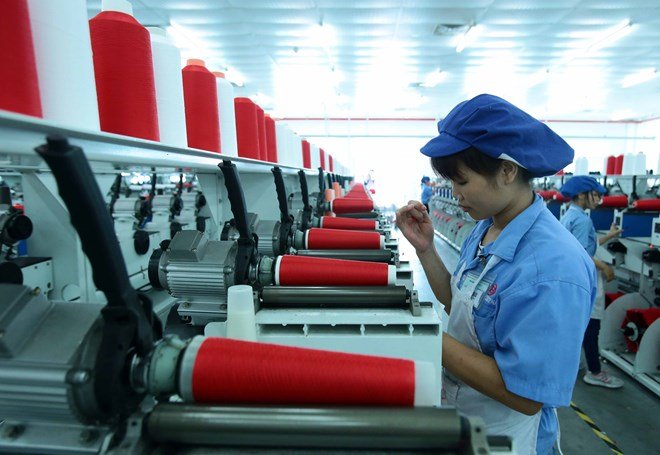
Keyword
Author
admin
Share
Vietnam needs to improve economic resilience
Viện Nghiên cứu Phát triển Lãnh đạo Chiến lược
Từ khóa
Ngày đăng
Tác giả
admin
Chia sẻ

It is critical to improve the resilience of the Vietnamese economy to withstand and recover from external shocks, experts told a conference in Hanoi on May 15.
Senior economist from the Bank for Investment and Development of Vietnam Can Van Luc spoke at the conference about economic stability and business competitiveness held by the Institute for Brand and Competitiveness Strategy.
Luc said that due to its small scale but high level of openness, the Vietnamese economy was more vulnerable than most to external shocks.
From the end of 2018 to date, major risks to the growth momentum of the global economy and Vietnam included trade tensions between the US and China, the slowdown of the global economy, geopolitical risk and diseases and climate change, he said.
The operation efficiency of firms was low with the return on asset ratio (ROA) averaging only 2.7 percent, Luc said, adding that the highest ROA was still demonstrated by foreign direct investment (FDI) companies (6.9 percent), followed by State-owned enterprises (SOEs) (2.6 percent). The lowest ROA was among non-State firms (1.4 percent).
The development of new firms has also slowed since mid-2018, Luc said.
He said the equitisation process for SOEs was stagnant while the restructuring of credit institutions remained a challenge, posing a threat to economic growth.
To increase the resilience of Vietnamese firms, Luc urged firms to be proactive in enhancing competitiveness by improving corporate governance capacity and product quality, developing their business strategy and building their brands and a skilled workforce.
Focus should also be placed on improving the capacity for integration so that firms would be able to take advantage of free trade agreements.
Vietnam also needed to promptly issue national strategies for Industry 4.0 and the digital economy, Luc said.
According to Tran Dinh Thien, former director of the Vietnam Institute for Economics, Vietnam did not have many firms which could compete globally. Thien said 65 percent of firms are still categorised as micro.
“Why do micro-sized firms account for such a large proportion? We need to figure out the causes and solutions to boost their development,” Thien said.
In the disruptive era of Industry 4.0, many Vietnamese firms struggle to find a coherent plan of action, Thien said.
“If Vietnam wants to innovate and avoid being left behind, it is necessary to develop an appropriate legal framework and take risks,” said Thien.
At the conference, Deputy Chairman of the National Financial Supervisory Committee Ha Huy Tuan stressed the importance of economic stability in the context of global uncertainty and the rapid development of the digital economy.
“Vietnam needs to give priority to economic stability, especially financial stability,” Tuan said, adding that the digital economy was developing rapidly but carried a number of risks.
By VNA







